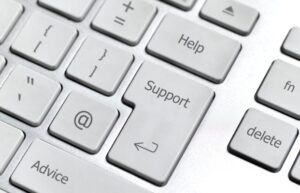Have you noticed that your commercial flooring is looking a little worse for the wear? Do you want to find out more about how to keep that commercial floor looking crisp and clean for your clients? If so, then you need to learn more about commercial flooring itself.
Doing so can help you understand how to clean it efficiently, what tools can help you keep it that way, and why it’s so important to stay on top of it.
See below for an in-depth guide on how to maintain a clean and slick-looking work environment for you, your staff, and your clientele.
1. Consider the Type of Flooring
Obviously, commercial property owners know there is a difference between caring for carpet and hard flooring surfaces.
However, most commercial owners put the term “hard surface” into one category. They clean their hard floors universally, not based on the type of material that the floor is made of.
Contrary to popular belief, all commercial floors should be cleaned differently, depending on the type of flooring material.
Your concrete floors will be cleaned differently than the tile floors in your bathroom. Those hardwood surfaces will be catered to separate from the commercial vinyl flooring you use for your offices.
The material of the flooring is also a determining factor in how frequently you should be cleaning it.
For example, tile floors and concrete floors are both super simple to maintain. However, concrete floors need to be cared for each day, whereas tile floors need to only be cared for once or twice a week. Unless, of course, they’re bathroom tile floors, then they should be cleaned and disinfected multiple times each day.
Knowing the type of commercial flooring you have and how to clean it efficiently can go a long way towards the overall integrity of your property.
2. Invest in Proper Equipment
Once you’ve identified the type of flooring that your commercial property is made of (most properties have more than one type), it’s time to invest in the right tools for the job. Here are a few items you may need:
- Paper Towels
- Disinfecting Solutions
- Bucket
- Vacuum
- Duster
- Broom (and Dustpan)
- Microfiber Towels
- Glass Cleaner
- Surface Cleaner
These are the bare essential tools, but you might also consider investing in things like BrainOS-powered autonomous floor scrubbers, hard surface cleaning tools, hard surface cleaners, buffers, burnishers, floor machines, and the like.
Keep in mind that your surface might require all, more, or less of these depending on its maintenance needs.
As an example, commercial vinyl flooring requires a plethora of tools to ensure that it keeps that polished shine that you’re looking for. That includes mops, cleaning detergent, floor finish, drying fans, and buffing machines.
But for carpet floors, on the other hand, you’ll only need three tools, really: a vacuum, an efficient cleaning solution, and a drying fan.
Most commercial building owners are looking for ways to automate their commercial cleaning needs these days. That includes things like the previously-mentioned autonomous floor scrubbers, which offer a high return on your investment.
3. Learn Regular Maintenance
Don’t get us wrong, we’re all for hiring commercial cleaning companies to help keep your property spick and span. However, unless you plan on hiring them to clean your property throughout each day, you’ll have to do some tasks on your own as well.
It’s important to learn the regular tasks that your floor type requires. Knowing this can help you get into a routine, which will ensure that your commercial flooring always looks tidy and well-kept.
For hardwood floors, make sure to sweep them and vacuum them regularly. Do not use water on hardwood floors.
For carpet, vacuum each day and apply a carpet cleaning solution once or twice each week. For tile flooring, sweep and mop each day. For vinyl flooring, vacuum, and mop each day as well.
4. Keep an Eye Out for Emergency Spots
No matter how often or efficiently you clean your commercial flooring, there will always be an emergency that pops up.
For example, a child might spill a drink on your commercial carpet, which could cause a stain if it isn’t properly cared for.
Any time you have a spill, the goal is to clean it and air dry it. If you’re cleaning carpet, apply carpet cleaner (don’t scrub it in), then let it air dry. As we pointed out earlier, don’t ever use water on hardwood flooring. If needed, use a dry mop to wipe the surface.
5. Know the Don’ts of Your Commercial Flooring Type
As you’ve seen in this article so far, every type of commercial flooring has certain “don’ts” that you should abide by.
For example, you should never scrub a carpet to try and remove a stain. Doing so just pushes it further into the fibers of the carpet and causes permeation. Instead, spray the surface, then blot at it with a dry towel.
Understanding these restrictions is vital to having commercial flooring that lasts. As an example, if you use water on your hardwood floor, it can cause the wood to warp, thus affecting the lifespan of your commercial flooring.
Invest in Proper Care for Your Commercial Flooring
Now that you’ve seen a guide on how to properly care for your commercial flooring, be sure to use this to your advantage.
Remember, the condition of your commercial property has a direct effect on your brand. Make sure you’re investing proper resources and time into keeping it clean.
Be sure to browse our website for more articles on commercial flooring, as well as many other helpful topics that you will enjoy.



![Read more about the article [Funding alert] D2C fashion brand Bewakoof raises Rs 60 Cr led by InvestCorp](https://blog.digitalsevaa.com/wp-content/uploads/2021/08/bewakoof-final1-1613673318567-300x150.png)





